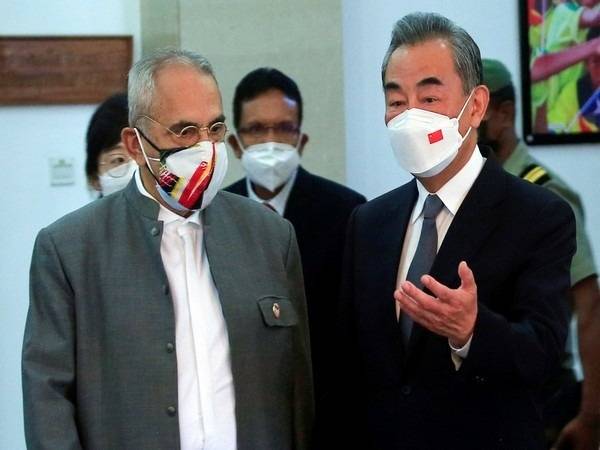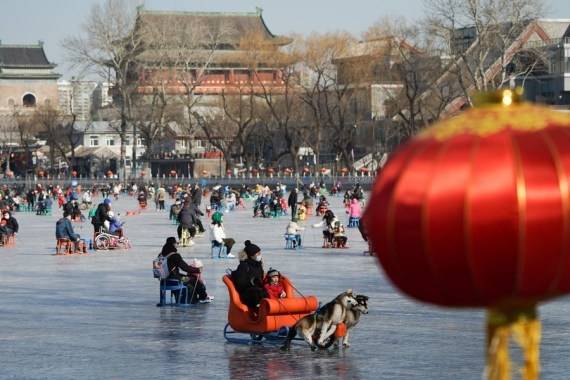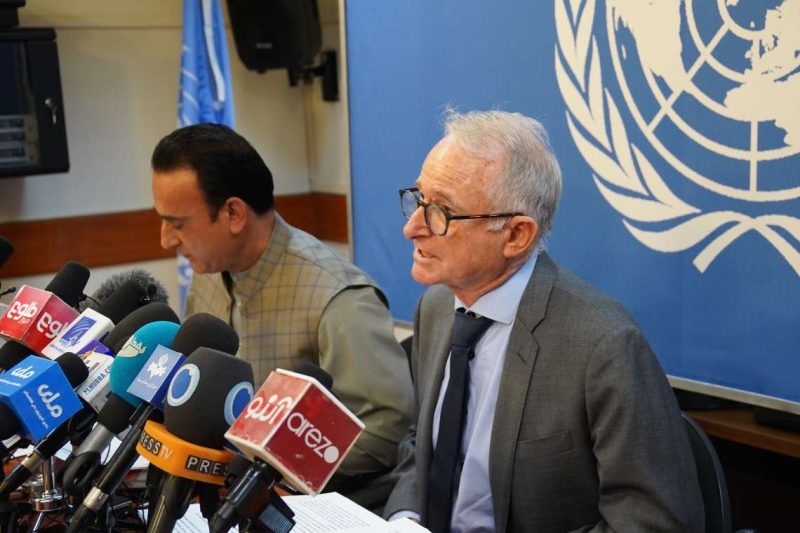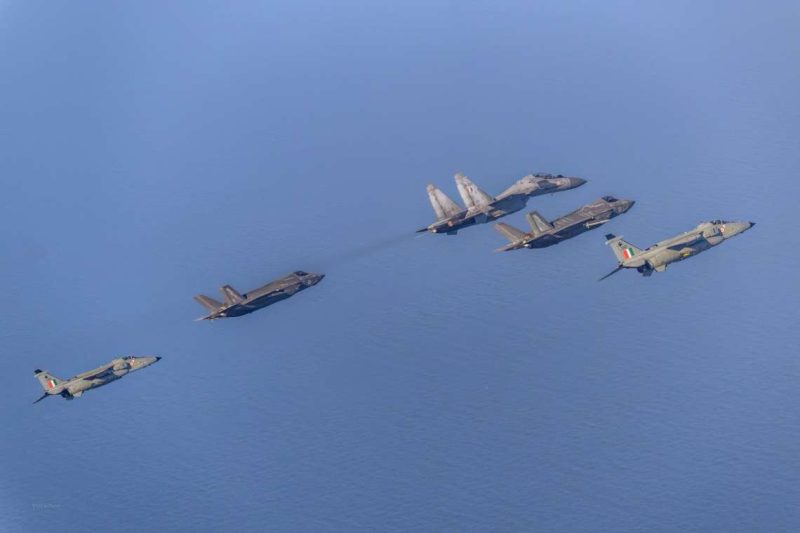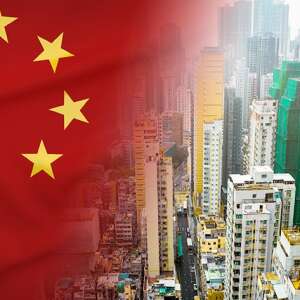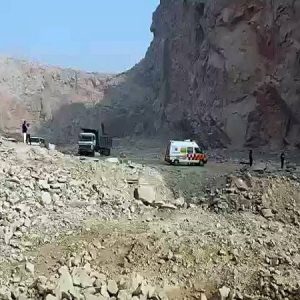Over the past seven years or so, different locations have been named as potential sites for Chinese naval and airbase infrastructure, generally through development investments by Chinese private companies or state-owned enterprises…reports Asian Lite News
For a long time, Australia, France, New Zealand, and the USA have been comfortable as undisputed “masters” of the South Pacific. However, a new power is attempting to muscle its way in, as evinced by Chinese Foreign Minister Wang Yi’s recent grand tour that encompassed eight Pacific countries and ten leaders in quick succession.
One after the other, Wang courted the leaders of Solomon Islands, Kiribati, Samoa, Fiji, Tonga, Niue, Cook Islands, Vanuatu, Papua New Guinea, and Timor-Leste, between 26 May and 4 June. In Honiara, Wang came out swinging at naysayers, calling criticism of the security deal “smears and attacks”.
The Solomon Islands shifted recognition from Taiwan to China in 2019.
In the same year, China was its top import and export destination, with a total value near USD515 million. Yet, more than 90 per cent of Solomon Islanders say they prefer their country to align with liberal democracies instead of China.
As Dr. Euan Graham, Shangri-La Dialogue Senior Fellow for Asia-Pacific Security at the International Institute of Strategic Studies, explained: “The primary driver behind the agreement is China’s long-term strategy of displacing the United States as the predominant power in the Western Pacific. It includes a clear ambition to break out of the maritime encirclement posed by the First Island Chain, which is composed mostly of ‘offshore’ Asian US allies and partners to gain a foothold somewhere in the scattered archipelagos beyond. This also serves Beijing’s immediate objective of taking over Taiwan by applying diplomatic and military pressure from within the Second Island Chain.”
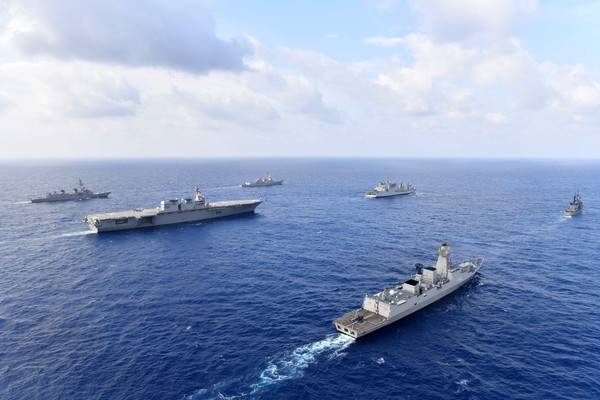
Graham elaborated: “Solomon Islands offer a prime location from which to exert control over surrounding sea and air space, potentially threatening longitudinal and latitudinal lines of communication between and among the US and its Pacific allies, including Australia. A Chinese naval base in the Solomon Islands could be used to interdict military reinforcement for Taiwan. Even an isolated People’s Liberation Army (PLA) facility in the Solomons used for intelligence gathering and presence, patrols would complicate defense planning for Australia and, to some extent, the United States.”
Over the past seven years or so, different locations have been named as potential sites for Chinese naval and airbase infrastructure, generally through development investments by Chinese private companies or state-owned enterprises, particularly Vanuatu, Papua New Guinea, Kiribati and Solomon Islands.
Its pact with Honiara indicates Chinese seriousness and confidence in the face of intensifying pushback, about carving out a security role in the South Pacific. It is irrelevant that China says it will not establish a military base; it has a well-equipped military facility in Djibouti but refuses to call that a base too.
Furthermore, China could easily exert pressure in the future and achieve “mission creep” from a civilian facility to a defense-oriented one.
Wang then traveled to Kiribati on 27 May, where he reached agreements on elevating Belt and Road Initiative (BRI) cooperation; disaster risk reduction; climate action; livelihood projects; COVID-19 medical supplies and protocols for medical teams; tourism; economic and development cooperation; fisheries production and processing; marine transportation; and bridge/road infrastructure.
These kinds of agreements are typical of those that China signed in each Pacific nation. Fisheries, especially, are a crucial foot in the door for China. After decimating fish stocks along its own coastline, and pillaging far-flung oceans, China’s fishermen are keen for new waters to ply their trade.
As Graham remarked, “Once China can negotiate fishery access, it’ll be a closed shop. Once invited in, never to leave. The seas will be plundered, the maritime militia will move in and the PLA Navy will follow.”
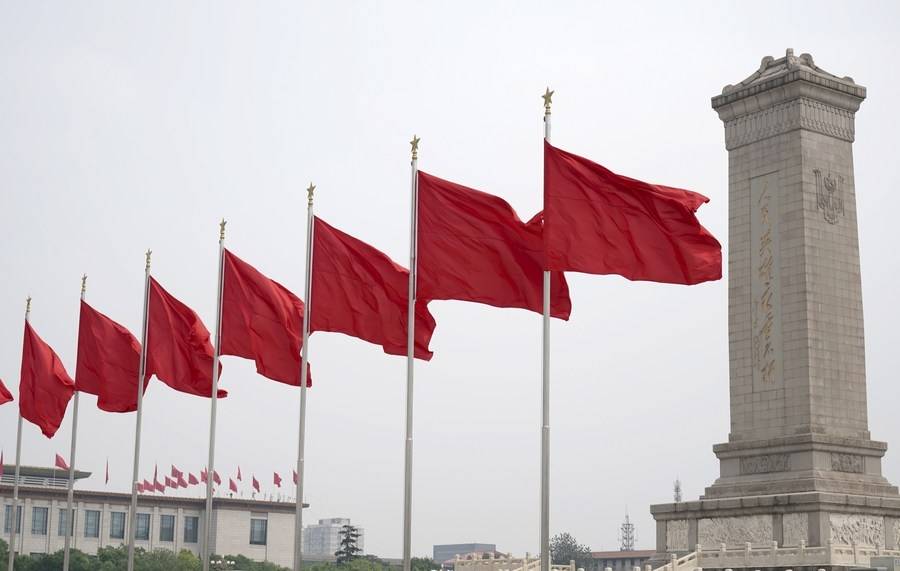
See how China has dominated fisheries in the South China Sea, forcing fishermen from other countries out of their traditional fishing grounds. It has deliberately rammed and sunk fishing boats. Furthermore, it imposes an annual unilateral fishing moratorium on others. Given its despotic behavior in the South China Sea, it is conceivable that China – which has the world’s largest coast guard – could send vessels into the South Pacific to “police” its agreements with Pacific nations.
There were fears that Kiribati might conclude a similar security cooperation deal to the Solomon one, but this did not occur. Kiribati switched diplomatic recognition from Taipei to Beijing in September 2019, which was a feather in China’s cap. Wang’s next stop was Samoa, where three deals were signed.
Fiji was the Chinese foreign minister’s next port of call, just one place where China is splashing money around freely.
For example, the Chinese embassy there readily disburses money to charity or non-governmental groups. One education organization that ANI spoke to said that checks for USD6,000 or USD7,000 at a time were written without quibble.
Conversely, applying for funds from Australian or New Zealand embassies involves screeds of paperwork and takes months to process. With cash flowing freely, China is gaining a following. The trouble is that all Pacific economies are struggling because of COVID-19, with tourism devastated. It is understandable that Chinese promises of economic aid are a lifeline for these countries, especially if their needs are being ignored by the likes of Australia, New Zealand, and the USA.
China has implemented nearly 500 projects in the Pacific islands and trained about 10,000 professionals. It has dispatched medical teams to eight nations and has BRI memoranda of understanding with ten countries. Trade volume has increased on average 13% annually since 1992.
Tonga was next, with Wang arriving there on 31 May. Then, the sixth stopover was Vanuatu, another country where there had been speculation that China wanted to set up a naval base.
Wang did not physically get to the Cook Islands, but he met with the country’s leader virtually on 2 June, just as he did with Niue’s. Wellington is responsible for the defense of both these countries as they are self-governing democracies in free association with New Zealand.
China’s blitzkrieg in the South Pacific has shaken up the incumbent powers, as it begins to change the dynamics of power and geopolitics. Indeed, just five days after taking up office after federal elections, new Australian Foreign Minister Penny Wong visited Fiji, followed by a trip to Samoa and Tonga on 1 June.
Fijian Prime Minister Frank Bainimarama said he had a “wonderful” meeting with Wong. He lamented, likely referring to Australia’s former prime minister Scott Morrison: “Fiji is not anyone’s backyard – we are a part of a Pacific family. And our greatest concern isn’t geopolitics – it’s climate change.”
Australia’s new Prime Minister Anthony Albanese warned that the previous government had “dropped the ball” in its dealings with the South Pacific. Albanese added, “We’ll be proactive in the region and we want to engage. Australia has been the partner of choice for a long period of time in the Pacific and we continue to do that.”
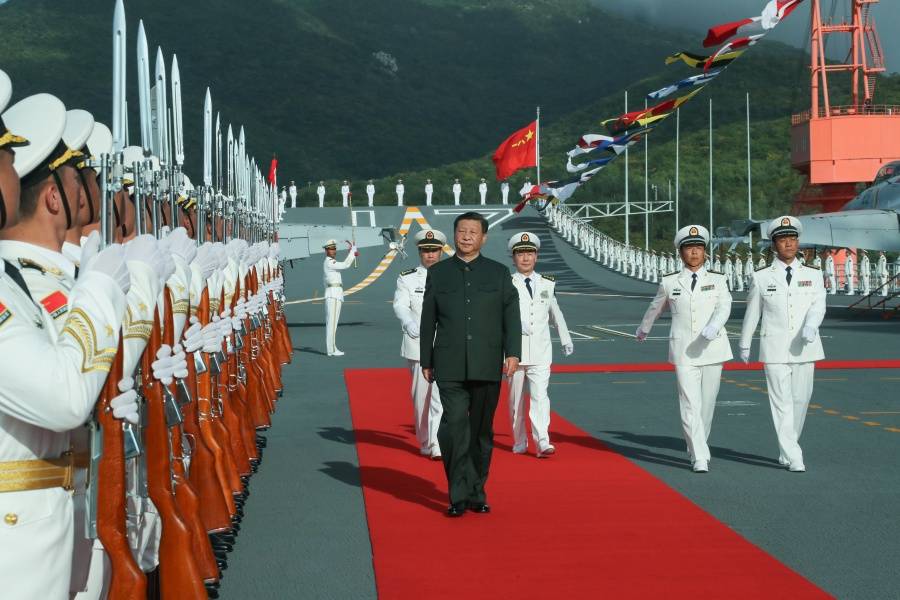
Australia is not used to having external threats on its doorstep, and the Solomons are just 1,000 miles from Cairns. However, the fact is that it is now impossible to prevent China from making further inroads into the Pacific.
In addition, the USA has long been guilty of navel-gazing. A visit by Kurt Campbell, The coordinator for Indo-Pacific Affairs was unable to dissuade Honiara from signing the security deal with China and, until now, the USA still does not even have an embassy there.
China’s charm offensive also catalyzed New Zealand, with Prime Minister Jacinda Ardern meeting President Joe Biden in the White House last week. One important topic of the conversation was the South Pacific, plus the two countries pledged greater military cooperation. As one New Zealander quipped, “Xi Jinping’s strategic overreach in the Pacific has achieved what decades of official negotiations could not.”
Although China trumpeted successes in Wang’s tour de force, it did meet with failure. This revolved around the inability to conclude a multilateral trade and security deal that China calls the China-Pacific Island Countries Common Development Vision.
A leaked draft showed China planned to expand police cooperation, conclude a free trade agreement, appoint a Chinese envoy to the region, pursue greater cybersecurity cooperation, and deeper collaboration in things as diverse as fisheries, agriculture, and pandemic management. It is significant that China is pushing beyond mere bilateral relations into multilateral groupings.
Wang chaired the joint meeting from Fiji’s Grand Pacific Hotel on 30 May, with all except Tuvalu, Palau, the Marshall Islands, and Nauru were in attendance (these still recognize Taiwan rather than China). This was the second such joint meeting, the first occurring in October 2021.
In a letter addressed to the forum, Chairman Xi Jinping stressed mutual respect and common development. “China stays committed to equality of all countries regardless of size, and remains guided by the principle of pursuing the greater good and shared interests and the principle of sincerity, real results, amity, and good faith in developing friendly ties with Pacific island countries.”
Xi promised to always be a “good friend”, and China would “galvanize support for shaping the future together”. However, what Xi has done is galvanize resistance against the Chinese encroachment, like Beijing, which exhibits a desire to reshape the regional order.
One requirement of the accord was that the Pacific states sign up to the “one China” policy and that they “understand and support China’s core interests and major concerns”. Yes, strings do come attached.
China was also inviting these nations to join the Fengyun meteorological satellite system, which collects data for civilian and military purposes. This could cut across existing maritime surveillance mechanisms such as the Quad’s Indo-Pacific Partnership for Maritime Domain Awareness.
Interesting is the prevalence of disaster relief efforts, with China aiming to get more involved, just as it did after Tonga’s recent volcanic eruption. Last year, China established a relief cooperation center and the Pacific Reserve of Emergency Supplies in Guangdong. It also wants to preposition “supplies” in various Pacific countries.
In a bold move, Federated States of Micronesia President David Panuelo wrote a letter to fellow Pacific leaders, warning that China’s proposed vision seemed “attractive” at first glance, but it would allow China to “acquire access and control of our region”.
The Chinese Embassy in Fiji responded by saying such criticism is “a distortion of China’s foreign policy” and “completely inconsistent with facts”. The embassy alleged, “It cannot be ruled out that the remarks were instigated and manipulated by Western forces.”
However, Samoan Prime Minister Fiame Naomi Mata’afa spoke for many when she said Beijing’s proposal to push through this deal at short notice was “abnormal”, and nothing could be agreed if the “region has not met to discuss it”.
Penny Wong said of the proposed deal: “We have expressed our concerns publicly about the security agreement. As do other Pacific islands, we think there are consequences. We think that it’s important that the security of the region be determined by the region. And historically, that has been the case. And we think that is a good thing.”
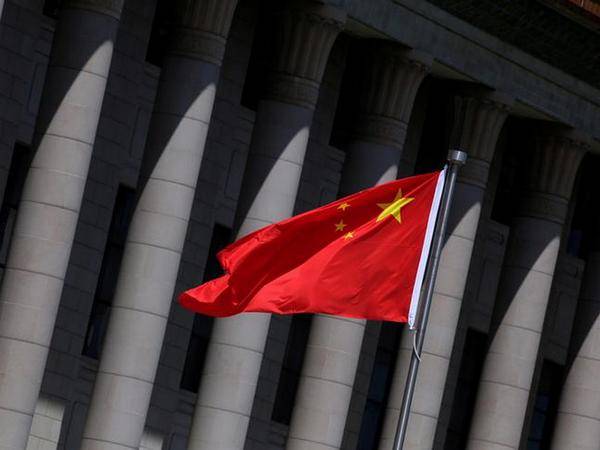
The Chinese Communist Party (CCP) is a well-practiced proponent of bullying and brutality – look no further than Tibet, Xinjiang, and Hong Kong. Those Pacific countries who think that China is benevolent will get a rude awakening, as the CCP begins to throw its weight around and leverages various agreements.
By using debt rather than aid to fund big-ticket investments, developing countries might achieve rapid socio-economic gains. However, this results in “political capture” and corruption. China has deliberately targeted leaders of such small countries, and they and their core supporters have disproportionately benefitted from Chinese largesse.
Five Micronesian countries withdrew from the Pacific Island Forum (PIF) last year, and China is keen to leverage this disunity in its favor. It impatiently wants to bypass the PIF and create its own dialogue with Pacific countries. However, China has shown immaturity in thinking that a multilateral regional deal could be signed so quickly. China might talk big about consensus, but Wang’s whirlwind effort did nothing to achieve it.
Furthermore, the timing is damaging given the deep upset that China has already caused by negotiating a security deal with the Solomons. This shows that Beijing is, at heart, totally insensitive to these Pacific nations.
Xi and his diplomats may be in a hurry, but this does not gel with the time-honored Pacific way of negotiation and consensus-building. Nonetheless, Chinese money still talks loudly. (ANI)


